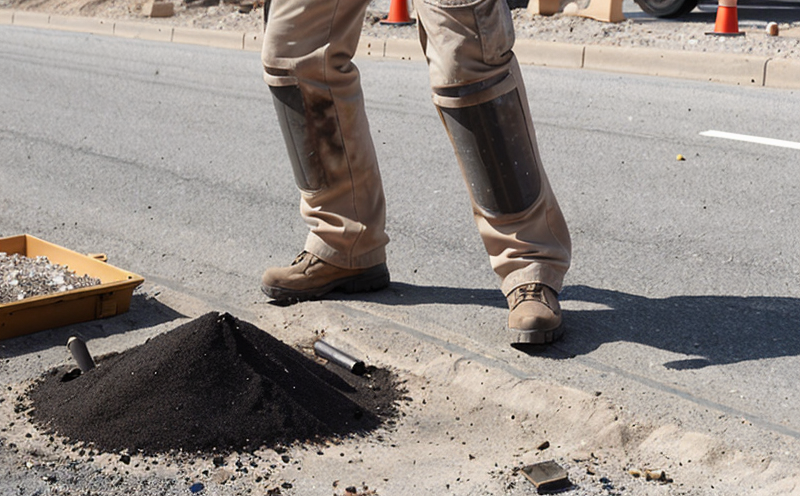UN Recommendations Series 3 Detonation Properties Testing
The UN Recommendations for the Transport of Dangerous Goods (commonly referred to as the Orange Book) is a set of globally recognized standards that provide guidelines on how dangerous goods should be classified, packaged, and transported. Series 3 of these recommendations specifically deals with explosive materials and their properties. This series includes tests designed to assess the detonation characteristics of explosives and blasting agents.
One critical aspect within this framework is the UN Recommendations for Detonation Properties Testing (Series 3). This set of tests evaluates the sensitivity, stability, and other relevant parameters that determine whether a material can be transported under dangerous goods regulations. These tests are essential to ensure public safety during transportation and handling in various mining operations.
In mining, the use of explosives is crucial for excavation and rock fragmentation processes. However, their transport and storage require strict adherence to international standards to prevent accidents that could endanger workers or communities nearby. The UN Recommendations Series 3 tests help mining companies comply with these regulations by providing accurate data on explosive materials' behavior.
At Eurolab, our state-of-the-art facilities are equipped with the necessary instrumentation and expertise to conduct these tests accurately and efficiently. Our team of experts ensures that every test adheres strictly to international standards such as ISO, ASTM, EN, IEC, etc., ensuring reliability and consistency in results.
Understanding the specific requirements for each explosive material is vital for mining operations. For instance, some materials might have stricter detonation thresholds than others due to their chemical composition or intended use. By conducting these tests, we can provide precise data that helps mine operators make informed decisions about which explosives are safest and most effective for their projects.
Our testing process involves several steps aimed at simulating real-world conditions as closely as possible. Specimens undergo rigorous preparation to ensure accurate results reflecting actual performance during mining activities. The tests assess various factors including sensitivity, stability, and explosive limits among others. These parameters are then meticulously recorded and analyzed using advanced analytical tools.
The importance of these tests cannot be overstated in the context of mining safety. By identifying any potential hazards early on through comprehensive testing, mines can implement preventive measures to minimize risks associated with explosive materials handling. Furthermore, compliance with UN Recommendations ensures legal adherence while fostering trust among stakeholders involved in transportation and utilization processes.
At Eurolab, we pride ourselves on delivering high-quality results that contribute significantly towards maintaining safety standards across the industry. Our commitment to precision, reliability, and continuous improvement sets us apart as a trusted partner for all your testing needs related to mining explosives.
Eurolab Advantages
- Accurate & Reliable Results: Our laboratory adheres strictly to international standards ensuring precise measurements and repeatable results.
- Comprehensive Testing Capabilities: We offer a wide range of services tailored specifically for the mining industry, including but not limited to explosive materials testing.
- Experienced Professionals: Our team consists of highly trained experts who possess extensive knowledge and experience in this field.
- State-of-the-Art Facilities: Equipped with cutting-edge equipment, our laboratory provides a controlled environment for conducting accurate tests.
- Dedicated Support Services: From initial consultation to final report delivery, we offer comprehensive support throughout the entire testing process.
Why Choose This Test
Conducting UN Recommendations Series 3 Detonation Properties Testing offers several advantages that are particularly beneficial for mining operations:
- Compliance with International Standards: Ensures strict adherence to global regulations, reducing the risk of non-compliance penalties.
- Informed Decision Making: Provides critical data needed by mine operators to select appropriate explosives for their projects based on safety and effectiveness criteria.
- Risk Mitigation: Early identification of any potential hazards through comprehensive testing helps implement preventive measures, thereby enhancing overall safety standards.
- Credibility & Trust: Compliance with these rigorous tests builds confidence among stakeholders involved in transportation and utilization processes.
Use Cases and Application Examples
- New Product Development: Mining companies often invest in developing new types of explosives. These tests help ensure the newly developed products meet safety standards before commercialization.
- Regulatory Compliance: Ongoing compliance with international regulations is crucial for mining operations worldwide. Regular testing ensures that all materials used comply with current legislation.
- Risk Assessment: By identifying any potential risks associated with the use of certain explosives, mines can take proactive steps to mitigate these risks.
- Quality Control: Continuous monitoring through regular testing helps maintain consistent quality levels across all products used in mining operations.





